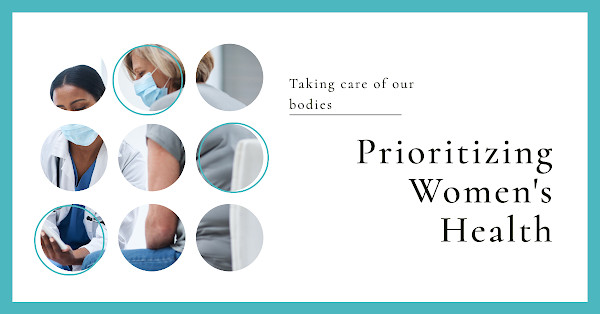The Importance of Having Regular Gynecological Exams
Explaining the Value of Having Regular Gynecological Exams
Introduction:
Gynecological examinations are a crucial component of a woman's overall healthcare routine. These appointments not only focus on reproductive health but also encompass various aspects of a woman's well-being. In this blog post, we will unveil the importance of regular gynecological check-ups and shed light on the comprehensive benefits they offer. By prioritizing these check-ups, women can take proactive steps towards maintaining their health, preventing potential issues, and ensuring a high quality of life.
1. Early Detection of Health Issues:
Gynecological check-ups play a crucial role in early detection and prevention of various health issues. Regular screenings, such as Pap smears, mammograms, and pelvic exams, can help identify signs of cervical, breast, or ovarian cancer, allowing for timely intervention and treatment. Additionally, these check-ups can detect other reproductive health concerns, including sexually transmitted infections (STIs) and hormonal imbalances.
2. Reproductive Health Management:
Gynecologists are specialized in managing and addressing a range of reproductive health concerns. Regular check-ups allow for monitoring of menstrual health, fertility evaluation, and management of conditions such as polycystic ovary syndrome (PCOS) and endometriosis. Gynecologists can provide guidance on family planning, contraceptive options, and preconception counseling to help women make informed decisions about their reproductive health.
3. Preventive Care and Health Maintenance:
Gynecological check-ups go beyond reproductive health and encompass preventive care and overall health maintenance. During these visits, healthcare providers can assess blood pressure, cholesterol levels, and body mass index (BMI). They can also address concerns related to bone health, heart health, and overall well-being. Vaccinations, such as HPV and tetanus shots, can also be administered during these appointments.
4. Sexual and Menstrual Health:
Gynecologists provide a safe and supportive environment to discuss concerns related to sexual health and menstruation. These check-ups offer an opportunity to address issues such as sexual dysfunction, menstrual irregularities, and contraception-related queries. Gynecologists can provide guidance on maintaining a healthy sexual life, managing menstrual symptoms, and addressing concerns related to sexual and reproductive development.
5. Education and Counseling:
Gynecological check-ups provide a platform for education, counseling, and empowerment. Women can gain knowledge about their bodies, reproductive health, and wellness practices. These appointments also serve as a space to discuss family planning, preconception care, pregnancy-related concerns, and menopause management. Women can ask questions, seek guidance, and make informed decisions about their health and well-being.
Conclusion
Regular gynecological check-ups are vital for maintaining women's health and well-being. These appointments offer a comprehensive approach to reproductive health, early detection of issues, preventive care, and education. By prioritizing these check-ups, women can take charge of their health, foster proactive healthcare practices, and ensure a high quality of life at every stage. Schedule your regular gynecological check-ups and empower yourself with knowledge and proactive care.





